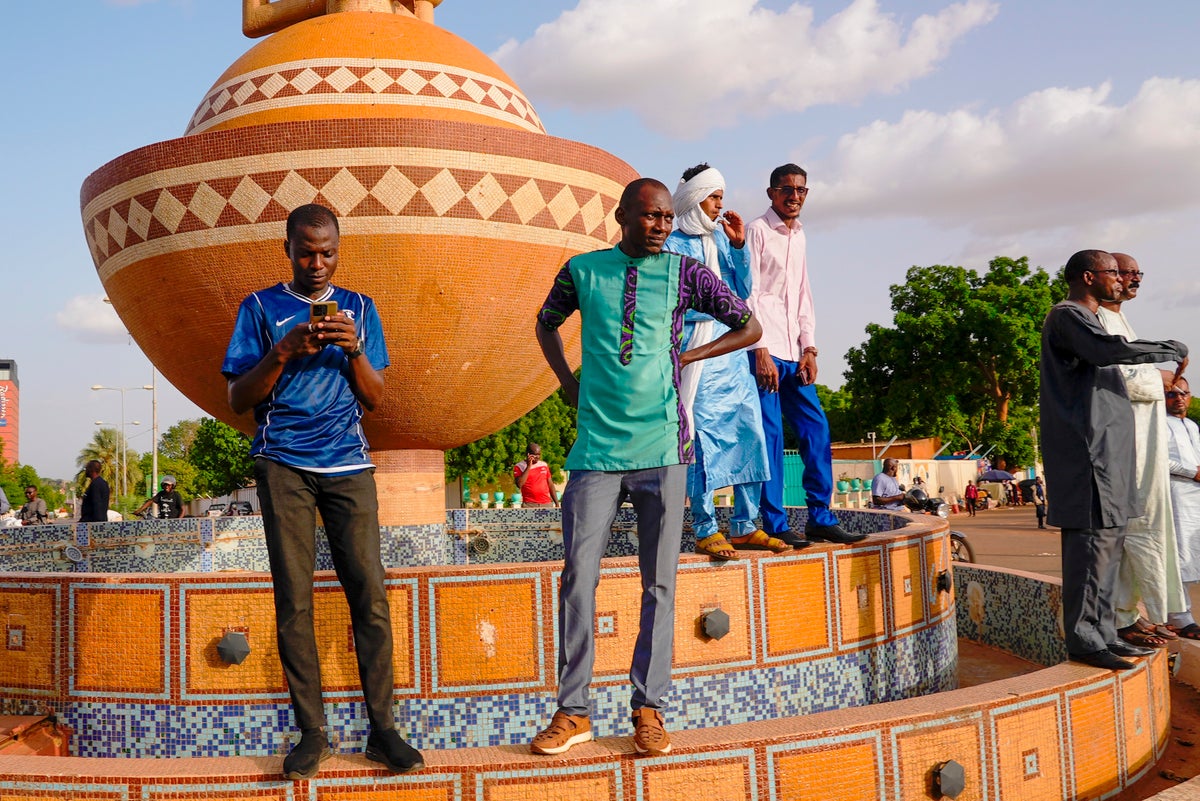
Nigeriens awoke to a divided country Thursday after mutinous soldiers claimed to have ousted the president. But Niger's government said it will never accept their rule and has called for the population to reject it.
“There was an attempted coup, but of course we cannot accept it,” Minister of Foreign Affairs Hassoumi Massoudou told news network France 24 in an interview Thursday.
“We call on all Nigerien democratic patriots to stand up as one to say no to this factious action that tends to set us back decades and block the progress of our country,” he said. He also called for the president's unconditional release and said talks were ongoing.
President Mohamed Bazoum was elected in 2021 in the West African nation’s first peaceful, democratic transfer of power since its independence from France in 1960. He thwarted a coup attempt days before he was sworn in.
Threats to his leadership undermine the West’s efforts to stabilize Africa’s Sahel region, which has been overrun with coups in recent years. Mali and Burkina Faso have had four coups since 2020, and both are being overrun by extremists linked to al-Qaida and the Islamic State group. United States Secretary of State Antony Blinken visited Niger in March, seeking to strengthen ties with a country where extremists have carried out attacks on civilians and military personnel but the overall security situation was not as dire as in neighboring nations.
On Wednesday morning, members of the presidential guard surrounded the house of Bazoum with him and his wife inside and detained him.
The mutinous soldiers, who call themselves the National Council for the Safeguarding of the Country, took to state television and announced they had seized control because of the deteriorating security and bad economic and social governance of the nation's 25 million people. They said all institutions had been suspended and security forces were managing the situation, and urged external partners not to interfere. The attempted coup was allegedly sparked by the head of the presidential guard, General Tchiani, who the president had planned to relieve from his position, Niger analysts say.
According to someone close to the president who spoke on condition of anonymity because they were not authorized to speak about the situation, the president has not and will not resign and is safe in his residence.
"The hard-won achievements will be safeguarded. All Nigerians who love democracy and freedom will see to it," Bazoum tweeted early Thursday morning.
It's unclear how much support the coup leaders have from the rest of the security forces, but support for Bazoum among the population and political parties appears strong. In a statement Wednesday, a group of Nigerien political groups said the situation was “suicidal and anti-republican madness."
“Our country, faced with insecurity, terrorism and the challenges of underdevelopment, cannot afford to be distracted,” it said.
Benin President Patrice Talon, head of the Economic Community of West African State, is expected to lead talks as part of mediation efforts.
In an interview with the Associated Press in December, Bazoum said that while there's always the possibility of a coup when armies fail to secure a nation against extremists, Niger had the situation under control. "We are doing well in managing our own situation,” he said.
For many Western countries, Niger was seen as the last hope for partnership in the region with anti-French sentiment that led to a pivot from French forces in Mali to the Russian mercenary group Wagner, founded by millionaire businessman Yevgeny Prigozhin. Wagner is believed to be making inroads in Burkina Faso as well.
There is concern that a potential new regime in Niger would take a page from those countries' playbooks and worsen instability.
The international community strongly condemned the coup Thursday.
French Foreign Minister Catherine Colonna tweeted that France is concerned about the events in Niger and following the situation closely. France “firmly condemns any attempt to take power by force,” the minister tweeted.
The European Union's foreign policy chief, Josep Borrell, tweeted that Niger is “an essential partner” for the EU in the Sahel and that the region’s “destabilization would serve no one’s interests.” He reaffirmed the EU’s full support of Bazoum.







